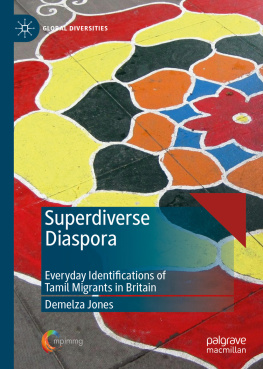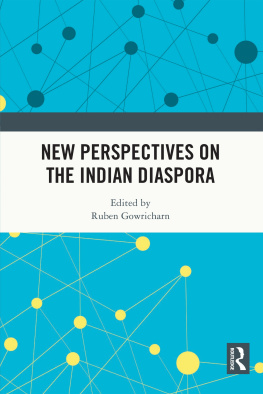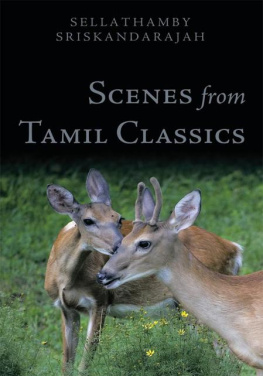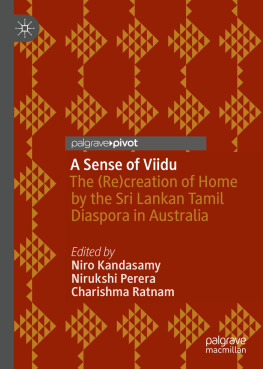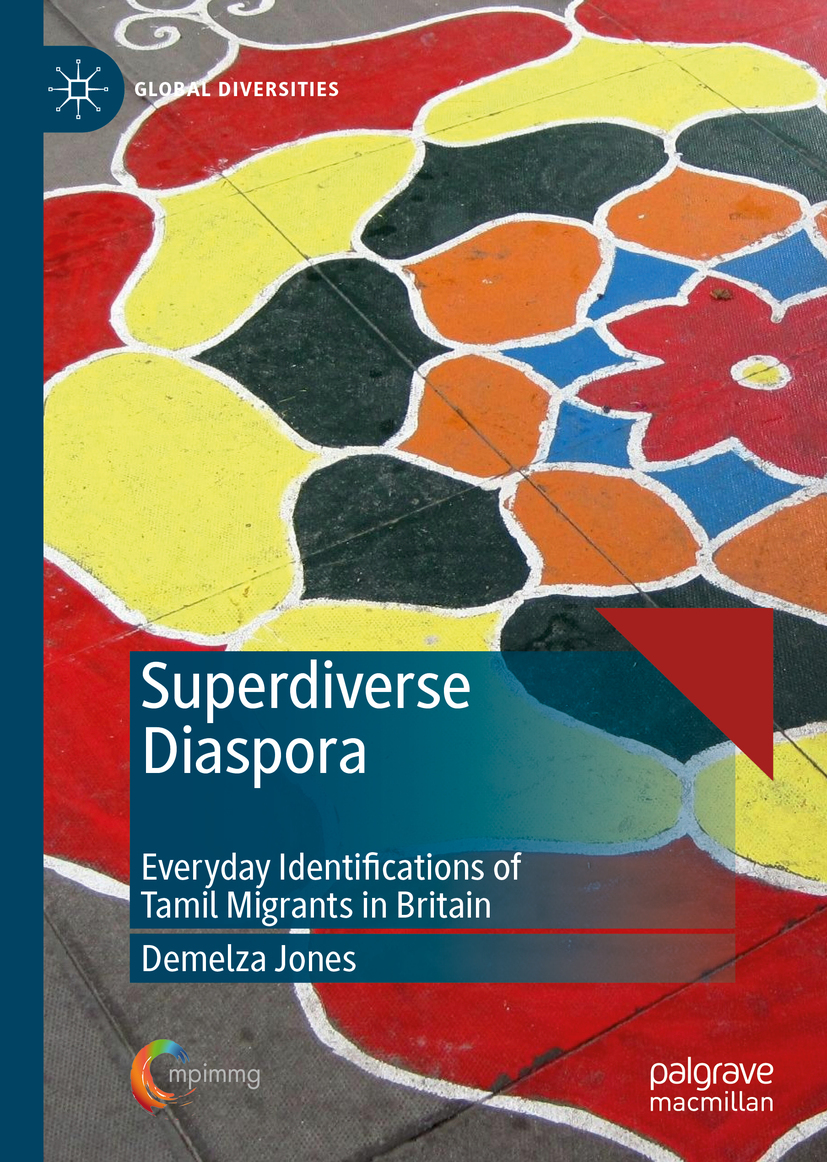Global Diversities
Series Editors
Steven Vertovec
Department of Socio-Cultural Diversity, Max Planck Institute for the Study of Religious and Ethnic Diversity, Gttingen, Germany
Peter van der Veer
Department of Religious Diversity, Max Planck Institute for the Study of Religious and Ethnic Diversity, Gttingen, Germany
Ayelet Shachar
Department of Ethics, Law, and Politics, Max Planck Institute for the Study of Religious and Ethnic Diversity, Gttingen, Germany
Over the past decade, the concept of diversity has gained a leading place in academic thought, business practice, politics and public policy across the world. However, local conditions and meanings of diversity are highly dissimilar and changing. For these reasons, deeper and more comparative understandings of pertinent concepts, processes and phenomena are in great demand. This series will examine multiple forms and configurations of diversity, how these have been conceived, imagined, and represented, how they have been or could be regulated or governed, how different processes of inter-ethnic or inter-religious encounter unfold, how conflicts arise and how political solutions are negotiated and practiced, and what truly convivial societies might actually look like. By comparatively examining a range of conditions, processes and cases revealing the contemporary meanings and dynamics of diversity, this series will be a key resource for students and professional social scientists. It will represent a landmark within a field that has become, and will continue to be, one of the foremost topics of global concern throughout the twenty-first century. Reflecting this multi-disciplinary field, the series will include works from Anthropology, Political Science, Sociology, Law, Geography and Religious Studies. While drawing on an international field of scholarship, the series will include works by current and former staff members, by visiting fellows and from events of the Max Planck Institute for the Study of Religious and Ethnic Diversity. Relevant manuscripts submitted from outside the Max Planck Institute network will also be considered.
More information about this series at http://www.palgrave.com/gp/series/15009
Demelza Jones
School of Natural and Social Sciences, University of Gloucestershire, Cheltenham, UK
ISSN 2662-2580 e-ISSN 2662-2599
Global Diversities
ISBN 978-3-030-28387-2 e-ISBN 978-3-030-28388-9
https://doi.org/10.1007/978-3-030-28388-9
The Editor(s) (if applicable) and The Author(s) 2020
This work is subject to copyright. All rights are solely and exclusively licensed by the Publisher, whether the whole or part of the material is concerned, specifically the rights of translation, reprinting, reuse of illustrations, recitation, broadcasting, reproduction on microfilms or in any other physical way, and transmission or information storage and retrieval, electronic adaptation, computer software, or by similar or dissimilar methodology now known or hereafter developed.
The use of general descriptive names, registered names, trademarks, service marks, etc. in this publication does not imply, even in the absence of a specific statement, that such names are exempt from the relevant protective laws and regulations and therefore free for general use.
The publisher, the authors and the editors are safe to assume that the advice and information in this book are believed to be true and accurate at the date of publication. Neither the publisher nor the authors or the editors give a warranty, express or implied, with respect to the material contained herein or for any errors or omissions that may have been made. The publisher remains neutral with regard to jurisdictional claims in published maps and institutional affiliations.
Cover illustration: Demelza Jones
This Palgrave Macmillan imprint is published by the registered company Springer Nature Switzerland AG.
The registered company address is: Gewerbestrasse 11, 6330 Cham, Switzerland
Acknowledgements
This book would not have been possible without the kindness and generosity of the Tamil people who I met during my research. I am deeply grateful to the community associations and places of worship who were hospitable and helpful to a curious visitor, to the individuals and families who so warmly welcomed me into their homes and to all those who agreed to tell me about their lives, including sharing painful memories of war and displacement.
This project began as a PhD at the University of Bristol, funded by a studentship from the Economic and Social Research Council (grant number: ES/G016666/1). I am grateful to Dr Jon Fox and Dr Katharine Charsley for providing invaluable support and guidance while supervising the work, and to my thesis examiners, Professor Pnina Werbner and Dr Andrew Wyatt, who encouraged me to publish. Thanks to current and former colleagues at the University of Gloucestershire and Aston University who have engaged with my work through departmental seminars and reading groups and to Dr John Harrison (and Anne) for always being interested in what I was up to.
Sections of this book are reworked from Jones (2016) and Jones (2014) and I am grateful to the anonymous peer reviewers and editors whose work contributed to these publications, as well as the editorial and administrative staff at Palgrave Macmillan.
Finally, thank you to my loving family: to Marvin, Pete and Steve and especially to Christopher and Lyra.

